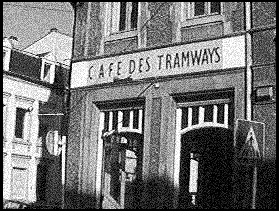Machine Translation Of The World Wide Web
The killer application for machine translation.
I have just read Machine Translation, An Introductory Guide, which describes the use of computer software to translate between human languages. Like all the best things the IT industry will sell you, this is technology that has been around for years. The book mentions METEO, a system used to translate weather reports from English into French and says 'The METEO system has been in daily use since 1977. As of 1990, it was regularly translating around 45 000 words daily.'
 Nowadays low-cost software is available for desktop PCs that will make a fairly good job of translating between a selection of languages.
Nowadays low-cost software is available for desktop PCs that will make a fairly good job of translating between a selection of languages.
In the future we can expect MT systems that perform instantaneous speech-to-speech translation so that we can communicate in a foreign language over the telephone or even, with smaller hardware, via hearing-aid style devices. Actually, the necessary machine translation, continuous speech recognition and speech synthesis technologies are probably now fairly close to being able to provide this.
The Killer Application For Machine Translation
It is clearly a truism to say that for the World Wide Web (WWW) to be truly world-wide its content must be accessible to people all over the world. The problem for many people around the world is that the majority of the content is in the English language. Web browsers that could automatically translate Web pages into the user's local language would have two great benefits.
Firstly, if (or when) the WWW becomes as pervasive a medium as television, being able to read Web pages in one's native language would do a lot to protect minority languages from the 'anglophone cultural imperialism' that the French are so worried about. Secondly, it would give anglophones access to other cultures; something that people usually start to appreciate when they learn one or more foreign languages and discover that it is not just the words that are different.
On the WWW this could work in two ways. Firstly, Web browsers would be able to translate from half a dozen major languages into the user's native language on the fly. This would allow people in Kazakhstan, say, to read most of the world's Web pages in the Kazakh language. Secondly, if you accessed a page on a Web server in Western Java, say, the server would automatically translate this from Sudanese into one of half a dozen other languages. The combination of these two approaches would probably allow most of the world's population to read most of the world's Web pages.
To a certain extent all of this is already possible, thanks to applications such as Digital's Babelfish page, which translates between English and a few other European languages. This greatly opens up the WWW to native speakers of French, Spanish, Portuguese, German, and Italian. I am interested to see whether any non-European languages will be added.
It is reassuring so see technology helping support cultural diversity in this way; I am looking forward to using Babelfish to read some foreign newspapers that I have never read before. Unfortunately too many people still say, as did the American in his twenties who I met at the weekend, 'I don't know why everyone doesn't just learn to speak English'. He was less than half joking. I can only hope that his children do well in their Mandarin Chinese and Hindi lessons at school.
Machine Translation, An Introductory Guide - D. Arnold, L. Balkan, R. Lee Humphreys, S. Meijer, L. Sadler. ISBN 1-85554-217-X, out of print


Comments
Contributed by Ralph Dessau on 3 November 1999.
Contributed by Peter Hilton on 3 November 1999.
Contributed by Ralph Dessau on 3 November 1999.